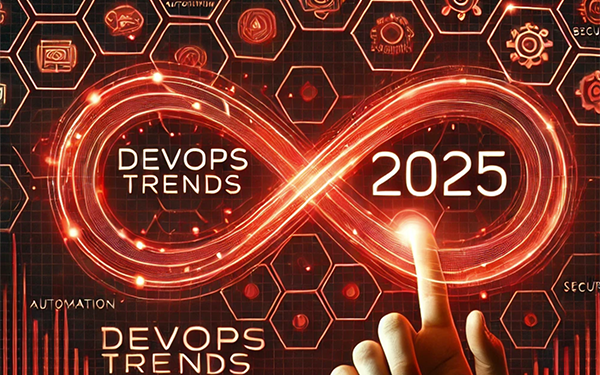DevOps continues to evolve at a rapid pace, shaping the way businesses develop, deploy, and manage applications. As organizations strive for agility, efficiency, and security, several emerging trends are set to redefine DevOps in 2025. Here are the key DevOps trends to watch out for in the coming year.
1. AI and Machine Learning in DevOps
Artificial Intelligence (AI) and Machine Learning (ML) are becoming integral to DevOps, enhancing automation and predictive analytics. AI-driven DevOps (AIOps) will play a significant role in anomaly detection, automated testing, and incident resolution. By leveraging AI-powered insights, teams can optimize workflows, improve deployment accuracy, and reduce downtime.
2. GitOps for Infrastructure Management
GitOps, which leverages Git repositories as a single source of truth for managing infrastructure and applications, is gaining traction. In 2025, organizations will adopt GitOps to improve version control, enable faster rollbacks, and enhance collaboration between development and operations teams. This approach ensures declarative infrastructure management and continuous deployment, making operations more efficient.
3. Low-Code and No-Code DevOps
The rise of low-code and no-code platforms is democratizing software development. DevOps is embracing these tools to accelerate application development and automate workflows. In 2025, expect more enterprises to integrate no-code automation in DevOps pipelines, reducing dependency on manual scripting and enhancing productivity.
4. Security-First DevOps (DevSecOps)
With increasing cyber threats, security is no longer an afterthought in DevOps. DevSecOps, which integrates security into every stage of the software development lifecycle, will become the norm in 2025. Automated security testing, infrastructure as code (IaC) security, and compliance-as-code will help organizations proactively address vulnerabilities and strengthen application security.
5. Edge Computing and IoT Integration
As edge computing and IoT adoption grow, DevOps will expand beyond centralized cloud environments to distributed architectures. In 2025, DevOps teams will focus on managing deployments at the edge, ensuring low-latency applications, real-time data processing, and seamless connectivity for IoT devices.
6. Kubernetes and Serverless Architectures
Kubernetes remains a dominant force in DevOps, enabling container orchestration and scalability. However, serverless computing is also gaining momentum. Organizations in 2025 will leverage both Kubernetes and serverless technologies to optimize resource utilization, reduce costs, and enhance deployment flexibility.
Conclusion
DevOps in 2025 will be driven by AI, security, automation, and distributed computing. Organizations that embrace these trends will gain a competitive edge by delivering faster, more secure, and efficient applications. Staying ahead of these developments will be crucial for enterprises aiming to scale and innovate in the evolving digital landscape.

















